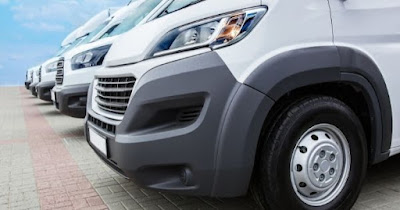A fleet of work vehicles can keep everything moving smoothly without employees needing to use their personal vehicles. Fleets make your business look more professional and help you keep track of your employees. However, like any vehicle purchase, you must carefully weigh your options before finalizing the deal. Before you buy, know what to consider before buying fleet vehicles for a business and make the right decision on the first try.
Seek Out Grant Opportunities
If you’re a small business owner, you need to find any opportunity you can to save some extra money—especially when purchasing something as significant as a fleet of work vans or trucks. Money that you save on your bulk vehicle purchase can go toward another business purchase or upgrades to your vehicles.
You can find government grants that incentivize purchasing alternate fuel fleet vehicles that reduce carbon emissions. You can do your part to curb hazardous emissions by choosing green vehicles if they’re reasonable for your business’s line of work.
Be Prepared To Maintain the Vehicles
Work vehicles add even more responsibilities to your constantly expanding list of tasks as a business owner. You’ll need to take care of your drivers, perform regular maintenance, and take the vehicles in for repairs whenever necessary. Knowing how to maintain your fleet effectively and efficiently will help to expand the life of your vehicles—you can even equip them with protective gear.
Should You Lease or Buy Fleet Vehicles?
This is last on the list of what to consider before buying fleet vehicles for a business: decide whether you’ll purchase or lease the vehicles. There are pros and cons for each decision.
Some of the pros of leasing fleet vehicles include:
- Less expensive payments
- Potentially newer vehicles
- You could swap fleet vehicles when renewing the contract
The cons of leasing fleet vehicles include:
- Wordy, potentially toxic contracts
- Less freedom with the vehicles’ mileages and modifications
- No equity gained
As for purchasing your own set of fleet vehicles, the pros include:
- Equity gained
- Can sell one or all vehicles when needed
- Full freedom with the vehicle, its mileage, and modifications
However, some of the downsides of purchasing your fleet vehicles are:
- More expensive payments
- May have to settle for used vehicles
- Infrequent vehicle trade-ins—may need to use the same vehicles for longer
Once you’ve mastered fleet maintenance and create a routine for yourself and your crew, it will feel less and less like a chore and more of a standard part of regular vehicle care.

